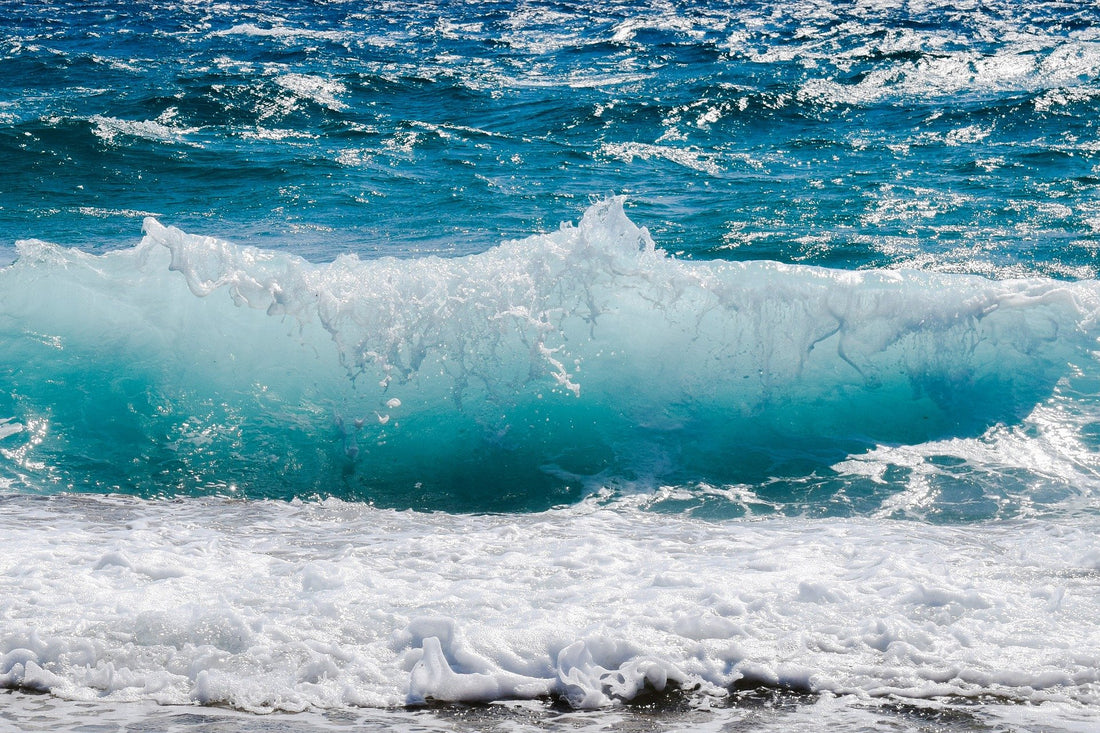Minerals found in water
If you ask a scientist “what is water?” they’ll probably tell you it’s the pure liquid form of the chemical H2O. The water we drink in our everyday lives, however, isn’t pure H2O. This doesn’t mean the water isn’t healthy. Quite the opposite, really. The impurities in our drinking water often include essential dietary minerals. But how do we distinguish between the good and the bad chemicals in our water? And how do we know what minerals are in water?
Let’s take a tour of the main minerals in our water:
-
Calcium (Ca2+): Calcium is important at all ages for healthy growth and bone development. There is good evidence to show that suitable calcium intake reduces the occurrence of osteoporosis and hip fractures. However, surveys indicate that over 50% of North Americans do not consume the daily recommended intake of calcium. [3]
-
Magnesium (Mg2+): Magnesium is another important element that has been shown important to preventing heart disease. But again, many North Americans are consuming inadequate levels in their diet. [3]
-
Sodium (Na2+): Sodium is more of a double edged sword, we do need sodium in our diet and there is a recommended daily intake. Too much sodium in the diet is associated with high blood pressure though so finding a balance is important. [3]
-
Fluoride (F-): Fluoride is naturally found in water in some areas, and intentionally added in others to reduce levels of tooth decay [4]. (There is also fluoride in most toothpastes, for this reason.) There have been some concerns of potential health risks from too much fluoride intake. However, none of these claims have been scientifically proven and often focus on communities with extremely high fluoride intake. [5]
The benefits and prevalence of minerals such as calcium, magnesium, and fluoride in our water are proof of concept enough that “pure” water is healthier with added mineral impurities. (For those wellness junkies out there, “pure” isn’t always better!) But does water really contain enough minerals to make a meaningful contribution to our mineral intake levels? Does this depend on if you choose tap water or bottled mineral water?
Minerals in water
 Without chemical tests, it’s hard to know exactly what’s contained in every glass of water you drink. It’s not like you can see “stuff” in the water. Chemicals can dissolve in water, like sugar. If you put a teaspoon of sugar granules in a cup of water and stir, the sugar will “disappear” in the water. Well, it doesn’t disappear so much as it dissolves. The water tastes sweet even if the sugar isn’t visible. Various other chemicals, including minerals, may also be dissolved in the water we drink, with good, bad, and neutral benefits.
Without chemical tests, it’s hard to know exactly what’s contained in every glass of water you drink. It’s not like you can see “stuff” in the water. Chemicals can dissolve in water, like sugar. If you put a teaspoon of sugar granules in a cup of water and stir, the sugar will “disappear” in the water. Well, it doesn’t disappear so much as it dissolves. The water tastes sweet even if the sugar isn’t visible. Various other chemicals, including minerals, may also be dissolved in the water we drink, with good, bad, and neutral benefits.
A mineral is a name for a naturally occurring, inorganic substance that is not produced by living things and can generally form crystals [1]. Water that springs up from the ground passes through mineral deposits, dissolving some of the surface salts (not just table salt—any metal and non-metal compound) from the Earth’s solid mineral crystals.
There are regulations on what can be sold as “mineral water.” Mainly, no additional minerals may be added to water bottled from underground sources. All the minerals present must be those which naturally dissolved in the water as it passed through the ground. Some mineral waters will have an added antimicrobial agent (e.g. ozone), to make doubly sure the water is safe for consumption.
In the United States, the Food and Drug Administration also specifies that mineral water must contain at least 250 parts per million (ppm) of total dissolved solids. Relatively speaking, this isn’t a particularly high number: some tap water sources can naturally reach much higher levels of dissolved solids. Bottled waters under 250 ppm are classed as “spring waters.” [2]
Tap water may also come from underground springs, or surface water sources like reservoirs. Unlike mineral or spring, tap water is treated to make it potable (most country have very strict regulations on this) and supplied via water pipes to homes. The treatment removes microbes and other potential health-harming contaminants, but does not remove all minerals present before treatment.
Mineral levels in different types of water

Let’s start with the good news—drinking two liters a day of water from certain sources can make an important contribution to your vital mineral intake. A study in 2001 found that North Americans could get up to 16% of their daily recommended intake of calcium and up to 31% of their daily recommended intake of magnesium by drinking tap water. With certain types of bottled mineral water these intake values can push up to 58% for calcium and 41% for magnesium. [3]
On the surface those statistics might suggest that drinking bottled mineral water is preferable to other sources, due to increased calcium and magnesium intake. However it depends—and it depends an awful lot—on what water you’re drinking, and where it’s from.
The mineral levels of tap water vary between the different North American cities tested and even vary between samples taken within the same city. For over half the tap water sources tested, adults consuming this water can fulfill above 8% of their daily calcium intake and above 6% of their daily magnesium intake. The variation continues into bottled water as well. American bottled spring water often contains much lower mineral levels than tap water and has generally lower mineral content than comparable European bottled mineral waters. Bottled mineral waters from Europe have geographical-dependent variations in mineral content as well.
As if this variation isn’t enough, another point to consider is that high mineral content in bottled mineral water generally also means high sodium content, which could be problematic for those on low sodium diets (sodium levels are generally lower in tap water). If you want to know what’s in your water you’ll need to check the label on the bottle or look up the tap water content for your area.
Do I need to filter my water?
Given what we’ve just discussed about the potential health benefits of drinking mineral rich water, why would you ever want to filter out these nice components?

Commercially available filters often remove components in water such as calcium and magnesium. This is because these minerals are part of what makes water “hard”. Hard water can cause limescale on pipes and kitchen appliances but generally is filtered out because of the associated changes in taste. In addition to this, some filters also use a mechanism that increases sodium levels in water—which was the one mineral listed earlier with potentially negative health side effects.
So choosing to filter your water is a matter of personal preference. Tap water is clean–nearly 92% of community water systems tested in the US meet all applicable health based drinking standards [6] and 99.96% of English public water supplies comply with EU standards [7]. Therefore the decision to drink either bottled water or to filter tap water is a matter of consumer choice.
Writer: Josie Elliott
Editor: Elizabeth Trelstad, www.hellobeaker.com















